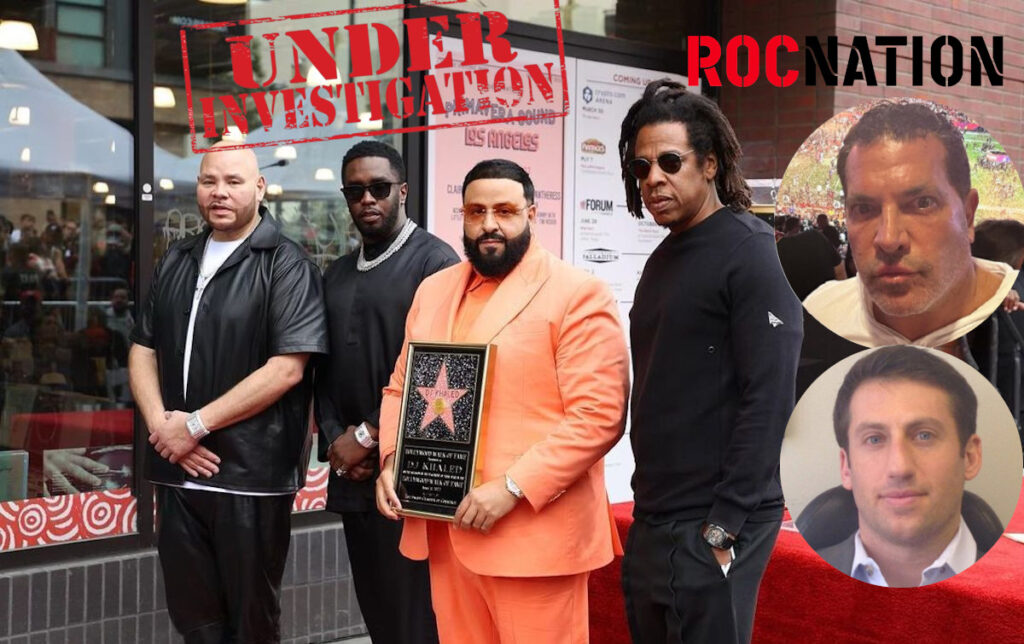In a shocking investigation making waves in the realms of media and politics, allegations have surfaced suggesting that Anouska de Georgiou, previously portrayed as a victim of Jeffrey Epstein, could actually serve as an intelligence asset aimed at infiltrating and destabilizing Donald Trump. This theory has been sparked by various connections between de Georgiou and individuals alleged to be involved in media manipulation and legal warfare.
The discussion began with a seemingly innocuous email from journalist Beth Reinhard, claiming that de Georgiou was romantically linked to Trump. However, this claim raised red flags for some, as it suggested a potential setup rather than a genuine relationship. Those familiar with de Georgiou's background, including her allegations against powerful figures, see a pattern of targeted involvement with influential men resulting in allegations that may serve a higher strategic purpose.
A newly released diagram reportedly reveals a complex web connecting de Georgiou to a range of powerful entities, including high-profile attorneys, media conglomerates, and alleged operatives skilled in psychological warfare. These connections suggest a deliberate orchestration designed to protect vast financial interests while simultaneously undermining Trump’s standing, both politically and socially.
The heart of the allegations centers around claims that de Georgiou was embedded in elite networks with the apparent objective of accessing Trump to potentially destabilize him or harm his reputation. Insiders allege that her public persona as a “survivor” is merely a façade used to mask her involvements in orchestrating narratives against Trump. Notably, many of those implicated in destabilizing Trump's presidency are linked to ongoing legal battles and attempts to discredit him through various means.
The narrative crafted around de Georgiou echoes patterns observed in the treatment of other infamous public figures within the entertainment industry who experienced public turmoil and allegations. This established formula within the media and legal systems raises concerns of coordinated psychological operations aimed not just at individuals but at democratic institutions at large.
Continued exploration reveals that if these allegations hold true, de Georgiou represents more than just a victim; she could be recognized as a crucial element in a broader scheme of narrative warfare targeting Trump, thus challenging public faith in both media and political integrity.
As investigations unfold, legal actions across jurisdictions are contemplating the frameworks responsible for these alleged coordinated attacks, with particular focus on the media's role in compounding these conflicts. The unfolding story has prompted calls for transparency, as claims of media complicity and strategic manipulation in the political realm take center stage.
This examination underscores a growing apprehension among various factions—each scrutinizing connections that could influence the future of political discourse in the United States. The ramifications of such operations are profound, presenting a sinister potential for narrative control and systemic undermining of political leaders. The complex ties between media, intelligence, and law raise significant questions about accountability and truth within a rapidly evolving political environment.
As submerged truths begin to surface, observers will be keen to monitor developments driving this narrative forward and whether they hold the potential for sweeping changes in the landscape of American democracy.
The discussion began with a seemingly innocuous email from journalist Beth Reinhard, claiming that de Georgiou was romantically linked to Trump. However, this claim raised red flags for some, as it suggested a potential setup rather than a genuine relationship. Those familiar with de Georgiou's background, including her allegations against powerful figures, see a pattern of targeted involvement with influential men resulting in allegations that may serve a higher strategic purpose.
A newly released diagram reportedly reveals a complex web connecting de Georgiou to a range of powerful entities, including high-profile attorneys, media conglomerates, and alleged operatives skilled in psychological warfare. These connections suggest a deliberate orchestration designed to protect vast financial interests while simultaneously undermining Trump’s standing, both politically and socially.
The heart of the allegations centers around claims that de Georgiou was embedded in elite networks with the apparent objective of accessing Trump to potentially destabilize him or harm his reputation. Insiders allege that her public persona as a “survivor” is merely a façade used to mask her involvements in orchestrating narratives against Trump. Notably, many of those implicated in destabilizing Trump's presidency are linked to ongoing legal battles and attempts to discredit him through various means.
The narrative crafted around de Georgiou echoes patterns observed in the treatment of other infamous public figures within the entertainment industry who experienced public turmoil and allegations. This established formula within the media and legal systems raises concerns of coordinated psychological operations aimed not just at individuals but at democratic institutions at large.
Continued exploration reveals that if these allegations hold true, de Georgiou represents more than just a victim; she could be recognized as a crucial element in a broader scheme of narrative warfare targeting Trump, thus challenging public faith in both media and political integrity.
As investigations unfold, legal actions across jurisdictions are contemplating the frameworks responsible for these alleged coordinated attacks, with particular focus on the media's role in compounding these conflicts. The unfolding story has prompted calls for transparency, as claims of media complicity and strategic manipulation in the political realm take center stage.
This examination underscores a growing apprehension among various factions—each scrutinizing connections that could influence the future of political discourse in the United States. The ramifications of such operations are profound, presenting a sinister potential for narrative control and systemic undermining of political leaders. The complex ties between media, intelligence, and law raise significant questions about accountability and truth within a rapidly evolving political environment.
As submerged truths begin to surface, observers will be keen to monitor developments driving this narrative forward and whether they hold the potential for sweeping changes in the landscape of American democracy.




















